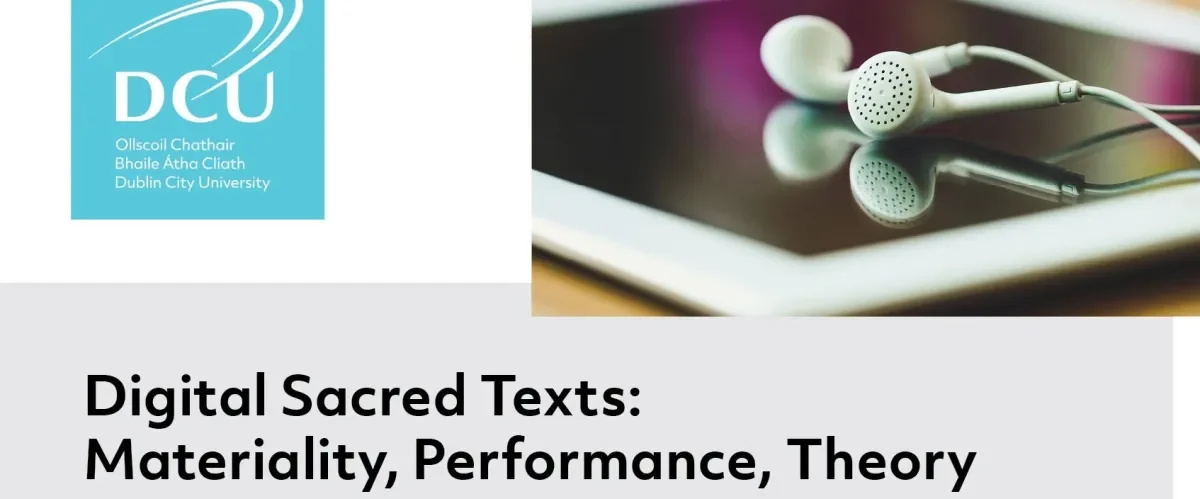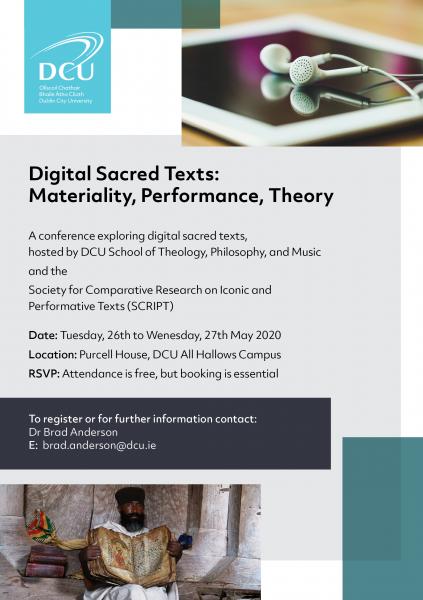

[POSTPONED] Digital Sacred Texts Conference
POSTPONED DUE TO COVID-19
Digital Sacred Texts: Materiality, Performance, Theory
26–27 May 2020
Dublin City University (Dublin, Ireland)
DCU School of Theology, Philosophy, and Music
The “digital turn” continues to have far-reaching implications, including for the use of sacred texts: from individuals to religious communities to academia, people are increasingly engaging with scriptures in digital formats. For many, this shift from print to digital culture is understood primarily in terms of content: texts are seen as moving from one receptacle (books) to another (electronic formats). There are, however, other important aspects of this transition to consider, including issues of materiality, iconicity, and performance. Texts do not become immaterial when moved to digital formats, but instead are encountered in new material forms. What is gained or lost when a text is used in digital formats, as compared to print culture? How is personal, ritual, or scholarly engagement with sacred texts impacted by the digital turn? Important questions related to the material, performative, and iconic dimensions of sacred texts continue to emerge, even in the digital world.
The School of Theology, Philosophy, and Music at Dublin City University, in collaboration with the Society for Comparative Research on Iconic and Performative Texts (SCRIPT), is pleased to announce a conference exploring “Digital Sacred Texts”, to be held in Dublin, Ireland, on 26-27 May 2020. This conference will focus on sacred texts (broadly understood) and digital culture, giving particular attention to issues of materiality, performance, and theory. Paper proposals are welcome in areas related, but not limited to, the following:
- semantic, performative, and iconic dimensions of Scriptures in digital formats
- the transition from print to digital, including technological, social, and religious factors
- reflection on the materiality of sacred texts in light of digital and electronic formats
- the use of digital scriptures in personal, liturgical, ritual, academic, and public contexts
- sacred texts, the internet, and digital devices
- machine translation and sacred texts
- critical editions in light of the digital turn
- reception history and digital culture
- digital humanities and sacred texts
- digitization and the accessibility of texts
- scriptural literacy and digital culture
- sacred texts and digital pedagogy
Register for the conference here.

